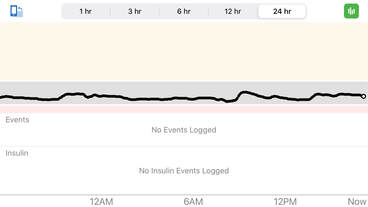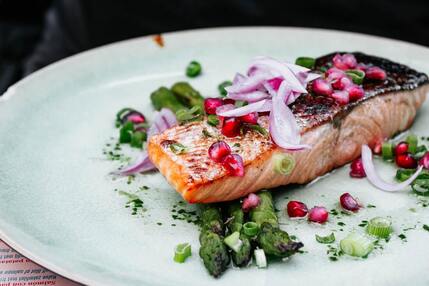|
After years of struggling with chronic – and dangerous – reactive hypoglycemia, I finally tried the keto diet and it’s changed my life forever. Reducing dietary carbohydrates to resolve chronic low blood sugar may seem counter-intuitive, but for people with dysregulated insulin production or insulin resistance, low-carbohydrate diets like the ketogenic diet may be the most effective choice for preventing hypoglycemic attacks. I struggled with chronic reactive hypoglycemia (low blood sugar after meals) for years until I started the keto diet in 2020. This change has been transformative for me and many others struggling with unstable blood sugar. In this article, I explain the science of why post-meal hypoglycemia occurs, what steps I’ve taken to prevent it from happening, and how I’ve made a ketogenic diet a sustainable choice for myself. If you’ve struggle with hypoglycemia and blood sugar imbalances like me, the ketogenic diet could be a great solution for reclaiming your health.
0 Comments
 In October 2020 I began a very successful experiment with the ketogenic diet to control my reactive hypoglycemia. I wrote this post in April 2021 outlining the initial phases of this experiment. Since then, a lot has changed, so I wanted to give an update on how it's working for me now. Even though I had been "keto" for a year and a half, I had been pretty loosey-goosey with my carb limits. As long as I stuck under 60g carbs/day I could see that I was producing a little bit of ketones (using a ketone meter) and this kept my glucose relatively stable. After a few months of keto, my A1c dropped dramatically from 6.2 down to 5.2. I'm holding steady now at around 5.3. But because I was a little lax with my carbs, especially between the end of 2021 and the beginning of 2022, I would regularly get hypoglycemic crashes once every couple of weeks which I required a rescue remedy (a half of a cube of maple sugar). So recently I've gotten much more strict with my carb intake, and the results have been excellent. My ketones are in optimal range almost all the time, my energy and digestion is great, and my blood sugar is in better control than ever before.  Stevia leaf Stevia leaf As a person struggling with CF-related diabetes, I've tried lots of things to balance my blood sugar over the years. It wasn't until 2020 when I discovered the ketogenic diet that my life really changed for the better and my blood sugar came under excellent control. Diet is the primary intervention for controlling most types of diabetes, but sometimes we may need medications and/or herbal medicines to assist with glucose control. I recently taught an in-depth class on holistic nutrition and herbal medicine for diabetes and blood sugar imbalances including CFRD, types I and II diabetes, metabolic syndrome, reactive hypoglycemia, and glucose intolerance (which you can check out here). I cover the topics of diet and herbs very comprehensively in that class, but in this article I'll mention briefly a few medicinal herbs that I have used and recommended to other diabetics to assist with blood sugar control.  Stable blood sugar is a beautiful thing! Stable blood sugar is a beautiful thing! For the last ten years or so I've struggled with reactive hypoglycemia related to CFRD (cystic fibrosis-related diabetes). In the last couple of years it has become very difficult to manage. Reactive hypoglycemia is a condition where the blood sugar crashes 1-3 hours after a meal containing carbohydrates, leading to distressing hypoglycemia symptoms such as shakiness, anxiety, weakness, brain fog, fatigue, tachycardia, and in severe cases, unconsciousness or even coma. Reactive hypoglycemia is more common in CFRD than many CF-specialists realize. Despite avoiding simple carbohydrates and adhering to a Paleo-ish diet for many years, my reactive hypoglycemia has only gotten worse. That is, until I started a ketogenic diet in October of 2020. I've made a remarkable improvement in my blood sugar control and I'd like to report my success in detail here. |
Author
Mica (they/he) is a clinical herbalist, nutritionist, researcher, and writer living in Abenaki territory (Vermont). *************************** Disclaimer: The content of this website and blog is for educational purposes only and should not be considered medical advice. The information provided here is not intended to replace medical care. Archives
July 2024
Categories
All
|
Photo from BotanikGuide

 RSS Feed
RSS Feed
